Did you know that 1 in 100 children have Autism Spectrum Disorder?
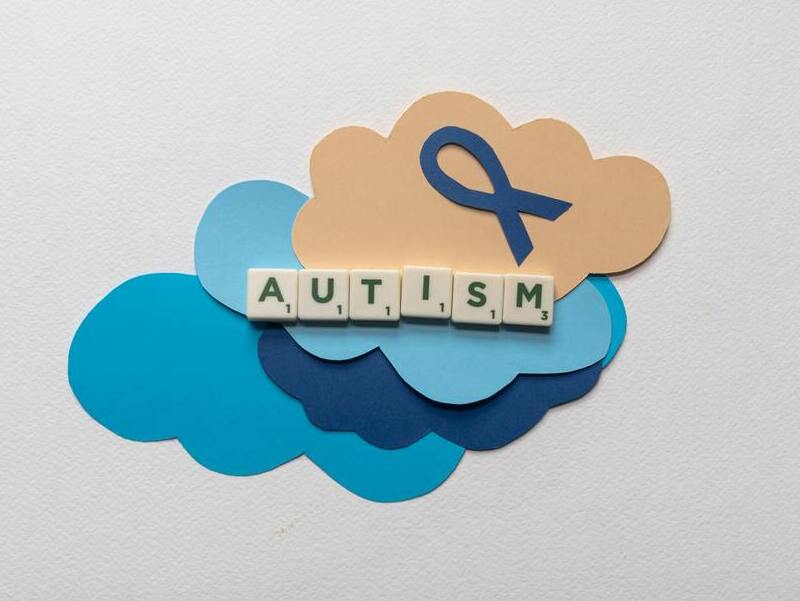
In a world full of colours and nuances, we each trace our own history, like a painting that slowly reveals itself to the curious eyes of society. Sometimes, there are canvases that contain different strokes, enigmatic to many, but full of beauty and depth. One such canvas is Autism Spectrum Disorder (ASD), and today, as every 2 April, we celebrate World Autism Awareness Day.
It is important to understand that ASD is a neurological condition affecting brain development, characterised by difficulties in social communication and repetitive patterns of behaviour. Individuals with ASD can have varied abilities and needs, making it a "spectrum" of disorders. It manifests itself differently in each person and can range from mild to severe. It is a variation in human functioning that teaches us to see life from a different perspective.
Imagine for a moment the world through the eyes of someone with autism: every sound, every texture, every emotion is intensified and brought to life in a unique way. It is like watching a film in high definition, where the finer details take on a deep and special meaning. But this view of the world can be overwhelming in an environment that is not adapted to receive and understand these sensitivities. This is where the empathy and understanding of all of us comes into play.
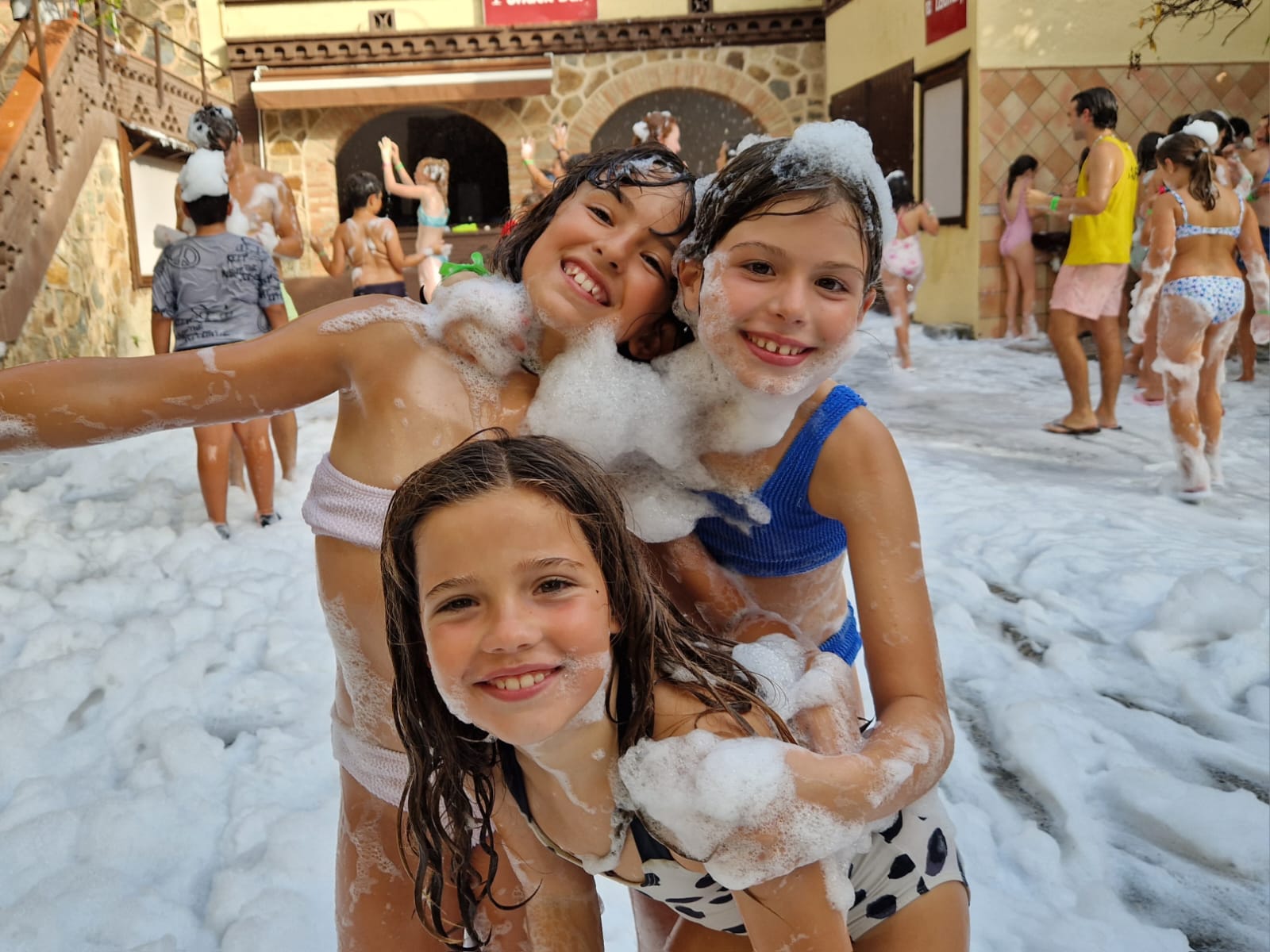
What actions can we take to make the summer camp more welcoming for people with ASD?
The answer is as simple as opening our minds and being more empathetic. Let's look around us and recognise the beauty in the little things. Sometimes a kind gesture or a kind word can have a significant impact on the day of someone who experiences the world from a different perspective due to ASD. It is important that at camp we adapt our activities and routines to include everyone, and provide individualised support when needed. At English Summer we believe in the power of education and understanding to build a more inclusive world, and at our summer camps, every small gesture of kindness and support contributes to making this vision a reality.
Have you heard of equine therapy for children with ASD?
It is an integral therapy with horses through activities with very specific objectives for each child. For many people with autism, this experience goes beyond conventional therapy. The aim is to improve the well-being, quality of life and autonomy of people with functional diversity.
Horseback riding not only strengthens the body, but also the spirit. The connection between rider and horse is an emotional bridge to stimulate and strengthen their motor, sensory and social aspects.
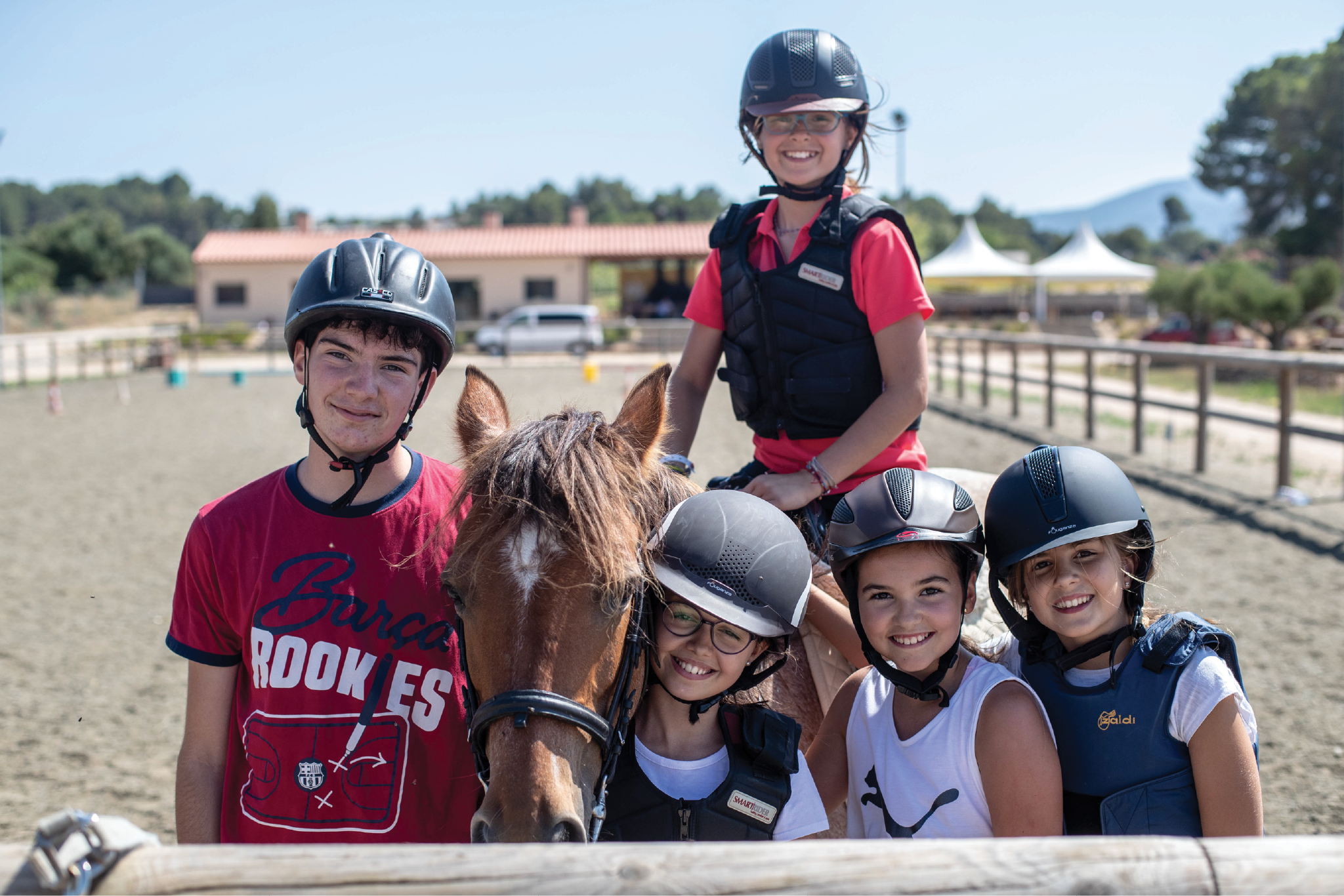
Physical benefits
Children with autism often experience difficulties in coordination, strength and muscle tone, and equine therapy allows them to develop strength while constantly adjusting their body to stay in balance and control the horse during changes in speed, direction, turns, and also while enjoying different activities or games. Handling the reins to steer or stop the horse promotes coordination between both sides of the body, while activities involving changes in position, such as turning or looking backwards, promote sequencing of motor steps and the ability to follow instructions. In addition, assuming and maintaining positions on the horse, such as kneeling or standing, contributes to the development of balance and motor control.
Sensory benefits
They generally enjoy the stimulation of the vestibular system - responsible for balance and spatial orientation - provided by the horse during a walk or trot, thanks to the changes in direction, speed and inclination they experience. The rhythmic movement of the child's body against the horse provokes a stimulating and positive sensation. In addition, the sounds and smells of riding are exciting to children, even those who may shy away from therapy in other environments. This excitement motivates children to cooperate, while the contact with the horse's coat encourages their skin and contributes to the overall sensory stimulation during the session.
Emotional bond
Children with functional diversity perceive that the horse will accept them as they are, regardless of their difficulties with speech, movement or physical appearance. They recognise that the horse does not judge them or perceive them as different from others. Caring for a horse gives them the opportunity to learn about the feelings of another living being and the responsibility of caring for it, including feeding, brushing and bathing. This bonding helps the development of social and communication skills in all aspects of their lives.
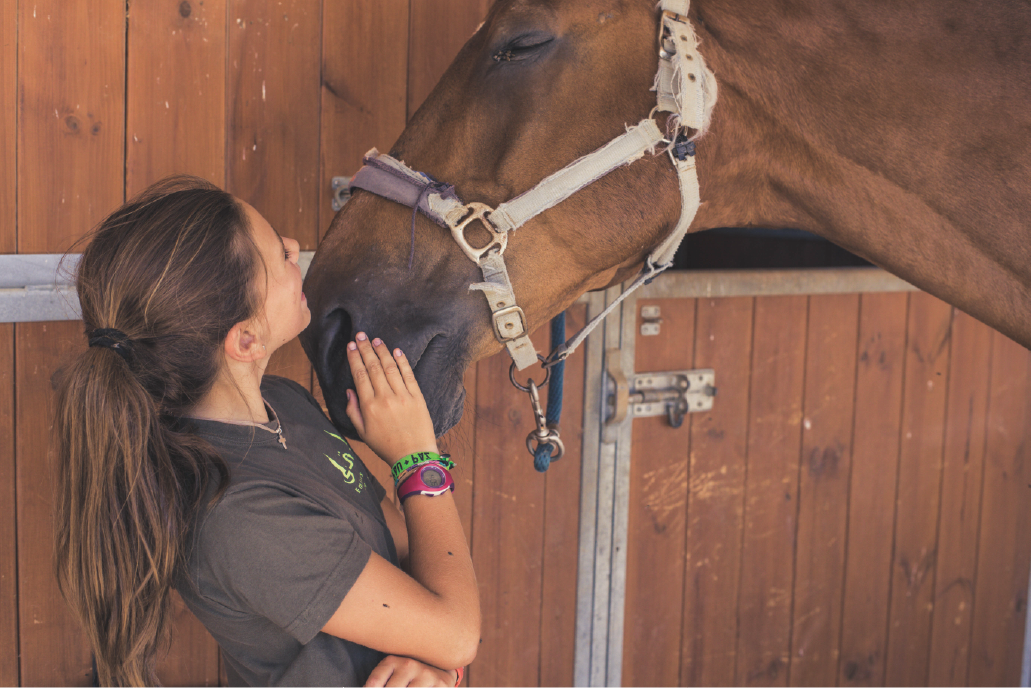
What is the English Summer horse riding camp like and what are the benefits for children with ASD?
At our house in Poblet we run the Horse Riding Camp, in which participants attend 15 hours a week at the Montblanc Riding Centre to interact with horses and nature. In addition to taking riding lessons, students have the opportunity to experience unforgettable weeks full of good times that they will always remember. Where the magic of riding merges with the warmth of summer and learning English. Our camp offers a unique experience where participants can explore the world of horses while developing language and social skills in a fluid, fun and stimulating way. It is a themed camp where they not only learn to ride horses, but also discover the power of connection and empathy. Each activity is designed to foster personal growth and self-confidence, while creating a supportive and accepting environment. The main goal of our camps is for students to understand that each person, whether neurotypical or neurodiverse, has something unique and valuable to bring to camp.
Through understanding, empathy and inclusion, we create a place where everyone can shine their own light.
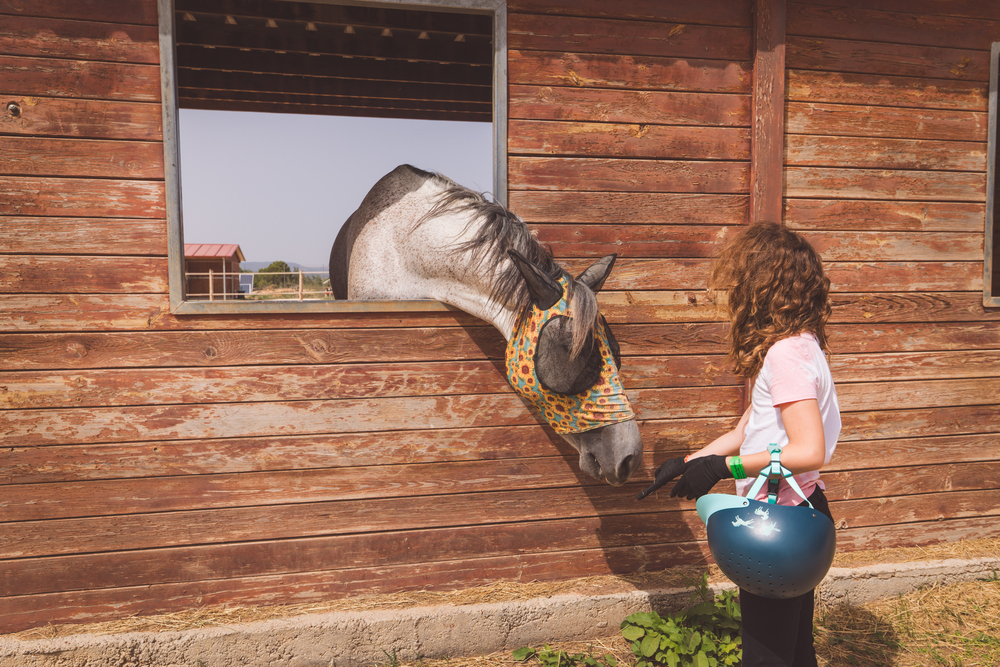
Would you like to join us in this adventure of discovery and growth? We are waiting for you with open arms and hooves ready to gallop! On our website you will find all the information you need to book Horse Riding Camp. Hurry up, there are only a few places left!

